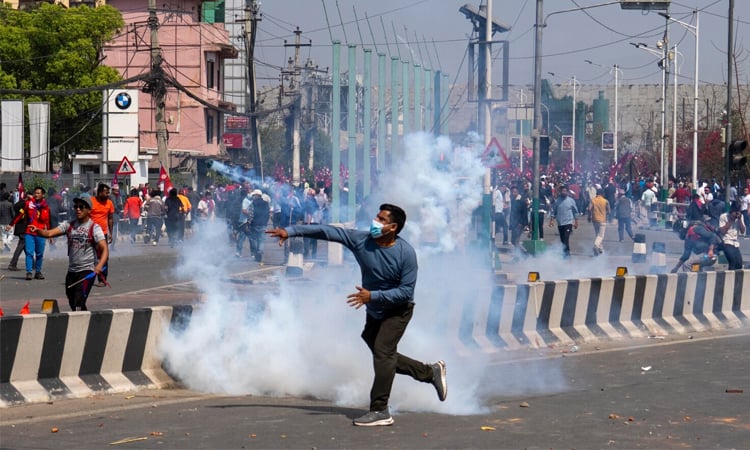News Flash

KATHMANDU, April 14, 2025 (BSS/AFP) - Nepal's former king has expressed sorrow over last month's violent demonstrations by pro-monarchy supporters while lending tacit support to their participants in his first public statement on the protests.
Gyanendra Shah, the last king of Nepal, was deposed in 2008 at the end of the Himalayan republic's decade-long civil war.
But public support for the restoration of the monarchy has grown in tandem with dissatisfaction over political instability, corruption and slow economic development.
Thousands took to the streets in March for a royalist rally that turned violent, with two people killed and more than 100 arrested.
In a video posted on Facebook late Sunday, on the eve of Nepal's traditional new year celebrations, Shah said that while freedom of expression was a beautiful feature of democracy, it was a right that "must be exercised with restraint".
"The recent violence, arson and vandalism during public demonstrations which caused significant human and material losses have deeply saddened us," he said.
Shah added that he viewed "the growing awareness among Nepali people about the nation and its future positively".
"Our belief has always been in a multi-party democracy and a constitutional monarchy that aligns with people's sentiments," he said.
Nepal adopted a federal and republican political system in 2008 as part of a peace deal that ended a civil war responsible for more than 16,000 deaths.
Shah has largely refrained from commenting on Nepal's fractious politics since, but recently made several public appearances with supporters.
He was crowned in 2001 after his elder brother king Birendra Bir Bikram Shah and his family were killed in a palace massacre that wiped out most of the royal family.
His coronation took place as a Maoist insurgency was raging in far-flung corners of Nepal.
Shah suspended the constitution and dissolved parliament in 2005, triggering a democratic uprising in which the Maoists sided with Nepal's political establishment to orchestrate huge street protests.
That eventually precipitated the end of the conflict, with parliament voting in 2008 to abolish Nepal's 240-year-old Hindu monarchy.